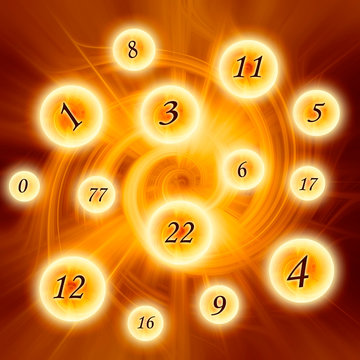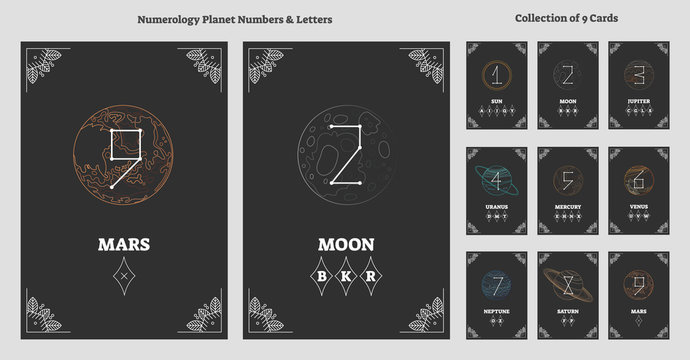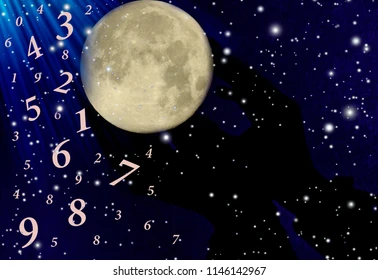
Introduction
In the intricate tapestry of mystical practices and ancient wisdom, numerology stands out as a compelling tool for deciphering the hidden meanings embedded in the numerical fabric of our existence. Beyond mere digits and calculations, numerology delves into the cosmic dance of energies, offering profound insights into the patterns that govern our lives. One captivating aspect of this esoteric art is the role of the year – a temporal marker that serves as a compass guiding individuals and societies through the ebb and flow of cosmic vibrations.
As we embark on a journey to unravel the mysteries of numerology, it becomes imperative to understand the profound significance of the year within this mystical framework. The year, in numerology, is not merely a chronological marker; rather, it is a dynamic force that shapes the collective consciousness and influences the destinies of individuals in ways that extend beyond conventional comprehension.
In this article, we will embark on a voyage through the realms of numerology, exploring the captivating role that the year plays in shaping our experiences, decisions, and the overarching energies that surround us. From the calculation of universal year numbers to the deeply personal influence of individual year numbers, we will dissect the intricate layers of numerology and shed light on how this ancient practice unveils the hidden connections between time, energy, and our spiritual journey. Join us on this exploration of the cosmic code, where the numerical essence of each year emerges as a guiding force in the grand symphony of life.
Core Concepts of Numerology
Numerology, an ancient and esoteric system, posits that numbers hold profound significance and can unveil hidden truths about the nature of existence. This mystical practice encompasses several core concepts that form the foundation of its teachings, offering insights into personal characteristics, life paths, and the dynamics of the universe. Here are the key core concepts of numerology:
Life Path Number:
Central to numerology, the Life Path Number is calculated from an individual’s date of birth. It represents the essence of one’s life journey, personality traits, and potential challenges. The sum of the digits in the birth date is reduced to a single-digit or master number (11, 22, or 33), revealing the individual’s life path.
Expression Number:
Also known as the Destiny Number, the Expression Number is derived from the numerical values assigned to the letters in one’s full birth name. It reflects an individual’s potential talents, strengths, and challenges. By exploring the Expression Number, numerologists gain insights into a person’s life purpose and natural abilities.
Soul Urge Number:
The Soul Urge Number, derived from the vowels in one’s full name, unveils the inner desires, motivations, and passions of an individual. It provides a deeper understanding of personal aspirations and the core aspects of the soul’s journey.
Personal Year Number:
The Personal Year Number changes annually, reflecting the energies and opportunities that will shape an individual’s experiences during that specific year. Calculated from the birth date and the current year, this number offers guidance on the themes and challenges that may arise in a given period.
Universal Year Number:
Similar to the Personal Year Number, the Universal Year Number encapsulates the energies that influence the collective consciousness on a global scale. Calculated from the reduced sum of the current year, it provides insights into overarching themes, societal shifts, and global events.
Master Numbers:
In numerology, certain double-digit numbers are considered master numbers due to their potent vibrational frequencies. Master numbers include 11, 22, and 33. These numbers are not reduced to a single digit and are believed to carry heightened spiritual significance and challenges.
Pythagorean vs. Chaldean Numerology:
Two primary systems of numerology, Pythagorean and Chaldean, exist. The Pythagorean system, based on the teachings of the ancient Greek mathematician Pythagoras, assigns numerical values from 1 to 9 to the letters of the alphabet. The Chaldean system, with roots in ancient Babylon, utilizes a different letter-to-number mapping. Practitioners may choose one system over the other based on personal preference or cultural considerations.
Understanding these core concepts provides a foundation for delving into the intricate world of numerology. As individuals explore the numerical aspects of their lives, they may unlock valuable insights into their personalities, life paths, and the cosmic forces that shape their existence.
How Important is the Year in Numerology?
The significance of the year in numerology is a pivotal aspect of this ancient practice, as it adds a temporal dimension to the cosmic framework. In numerology, each year is believed to carry its unique energy, vibrations, and themes, influencing individuals and the collective consciousness on a global scale. The exploration of the year in numerology involves two primary components: the Personal Year Number and the Universal Year Number.
Personal Year Number:
The Personal Year Number is a dynamic and personalized aspect of numerology that changes annually for each individual. Calculated by combining the individual’s birth date with the current year, this number reflects the specific energies and opportunities that will shape their experiences in the upcoming year. It serves as a guide, offering insights into the challenges, growth opportunities, and overall themes that will be prominent in the individual’s life during that period.
For example, a Personal Year 3 may signify a year of creativity, self-expression, and social interactions, while a Personal Year 7 may bring a more introspective and spiritually focused phase, involving self-discovery and contemplation.
Universal Year Number:
The Universal Year Number provides a broader perspective, offering insights into the collective energies that will influence societies, nations, and the global community at large. Calculated by reducing the sum of the digits in the current year, the Universal Year Number provides a thematic overview of the prevalent energies and trends that will shape the world during that specific year.
For instance, a Universal Year 5 may indicate a period of change, adaptability, and unpredictability on a global scale, while a Universal Year 9 may suggest a time of completion, humanitarian efforts, and the resolution of long-standing issues.
The significance of the year in numerology lies in its ability to act as a cosmic guide, helping individuals and communities align with the prevailing energies of the universe. By understanding and embracing the numerological influences of a given year, individuals can make informed decisions, navigate challenges with greater insight, and capitalize on opportunities that resonate with the cosmic vibrations of that period.
It’s essential to note that numerology does not predict specific events but offers a symbolic language to interpret the energies at play. As individuals explore the significance of the year in numerology, they gain a deeper connection to the cyclical nature of time and a profound awareness of the cosmic forces shaping their lives and the world around them.

The Influence of the Universal Year Number on Society
The influence of the Universal Year Number in numerology extends beyond individual experiences to shape the collective consciousness and societal dynamics on a global scale. Calculated by reducing the sum of the digits in the current year, the Universal Year Number provides a thematic overview of the prevailing energies that will influence societies, nations, and the world at large. Understanding the influence of the Universal Year Number on society can offer insights into global trends, challenges, and opportunities. Here are key aspects to consider:
Collective Themes and Trends:
The Universal Year Number encapsulates the overall energy and themes that will characterize a specific year for the entire world. Each number is associated with certain qualities, and these characteristics manifest in global trends and events. For example, a Universal Year 1 may herald a year of new beginnings, innovation, and individual empowerment, while a Universal Year 9 might signify a period of global humanitarian efforts and the resolution of long-standing issues.
Sociopolitical Landscape:
The Universal Year Number is often reflected in the sociopolitical landscape, influencing the emergence of social movements, political shifts, and global events. Changes in leadership, the rise of specific ideologies, or the resolution of international conflicts may align with the overarching energy of the Universal Year.
Economic Influences:
Economic trends and financial markets may also be influenced by the Universal Year Number. Some years may be characterized by economic expansion, innovation, and entrepreneurship (e.g., Universal Year 3), while others may bring about economic restructuring or challenges that necessitate adaptability (e.g., Universal Year 5).
Cultural and Technological Shifts:
The Universal Year Number can coincide with cultural shifts and advancements in technology. Changes in artistic expressions, popular trends, and breakthroughs in science and technology may align with the vibrational energy of a particular Universal Year.
Natural and Environmental Events:
Numerology’s influence on society extends to natural and environmental events. Certain Universal Years may be associated with a focus on environmental conservation, natural disasters, or global initiatives aimed at addressing climate change.
Global Unity and Cooperation:
Some Universal Years may foster a sense of global unity and cooperation, emphasizing collective well-being and collaborative efforts to address common challenges. This can manifest in international collaborations, peace initiatives, and humanitarian endeavors.
While numerology provides a symbolic language to interpret these influences, it’s important to approach the understanding of the Universal Year Number with a sense of openness and metaphorical interpretation. The correlation between numerological insights and real-world events is subjective, and different interpretations may arise based on various perspectives. Nonetheless, exploring the influence of the Universal Year Number on society offers a unique lens through which individuals can contemplate and engage with the broader energies shaping the world around them.
Using Your Personal Year Number
Applying the Personal Year in numerology to decision-making is a powerful tool for individuals seeking guidance and insight into the energies that will shape their experiences in a given year. The Personal Year Number, calculated by combining an individual’s birth date with the current year, offers a personalized perspective on the overarching themes, challenges, and opportunities that will unfold during that specific period. Here’s how you can effectively apply the Personal Year to decision-making:
Self-Reflection and Goal Setting:
At the start of each year, calculate your Personal Year Number to gain insights into the key themes of the upcoming months. Reflect on the aspects of your life that align with this number and consider how they might influence your goals and aspirations. Use this information to set meaningful and resonant objectives that harmonize with the energy of the Personal Year.
Understanding Challenges and Opportunities:
The Personal Year Number provides clues about potential challenges and opportunities that may arise. If, for example, you are entering a Personal Year 4, which is associated with stability, hard work, and building foundations, consider how you can approach challenges with a patient and diligent mindset. Look for opportunities to lay the groundwork for long-term success.
Adapting to Change:
Different Personal Years bring different energies, and some years may be more conducive to change and exploration. If your Personal Year suggests a period of transformation and new beginnings, be open to change and willing to adapt your plans accordingly. Embrace the potential for growth and innovation.
Aligning Actions with Personal Growth:
The Personal Year serves as a guide for personal growth. When making decisions, consider how each choice aligns with your overall journey and the lessons associated with your current Personal Year. Whether it’s a year of self-discovery or one focused on relationships, ensure that your decisions contribute to your broader evolution.
Timing and Patience:
Each Personal Year has its own rhythm and timing. If your current year is associated with patience, consolidation, or reflection, consider adopting a more measured approach to decision-making. Conversely, during a year of action and momentum, embrace opportunities that align with the energetic flow of that period.
Navigating Relationships:
The Personal Year Number can also shed light on your interpersonal dynamics. When making decisions that involve relationships, consider the themes associated with your Personal Year and how they may influence your connections with others. This awareness can contribute to more harmonious and supportive relationships.
Course Corrections and Flexibility:
If you encounter unexpected challenges or shifts in your path, use the insights from your Personal Year to make informed adjustments. Numerology encourages flexibility and adaptability, and being attuned to the energy of your Personal Year allows you to navigate changes with a deeper understanding of their significance.
Applying the Personal Year in numerology to decision-making adds a unique dimension to the process, offering individuals a personalized roadmap for the year ahead. By integrating these insights into your decision-making process, you can align your actions with the cosmic energies at play, fostering a greater sense of purpose, growth, and fulfillment in your life journey.

Criticisms and Counterarguments
While numerology has gained popularity as a tool for self-reflection and guidance, it is not without its critics. Skeptics and detractors question the validity of attributing significance to the role of the year in numerology. Here are some common criticisms along with counterarguments:
Lack of Empirical Evidence:
Criticism: Numerology lacks empirical evidence to support its claims, particularly regarding the influence of the year on individual and collective experiences. Critics argue that the associations between numbers and events are arbitrary and lack scientific basis.
Counterargument: Numerology operates within a symbolic and metaphoric framework, acknowledging that its principles are not rooted in empirical science. Its value lies in providing a unique perspective for self-reflection rather than adhering to traditional scientific methods.
Subjective Interpretation:
Criticism: Numerology is highly subjective, and interpretations can vary widely between practitioners. Critics argue that the lack of standardized methods and universally accepted meanings for numbers undermines the credibility of numerological insights.
Counterargument: Numerology’s subjective nature is acknowledged by practitioners, and interpretations often vary based on personal perspectives and cultural influences. However, this subjectivity allows individuals to find personally meaningful connections and insights within the framework.
Confirmation Bias:
Criticism: Skeptics argue that individuals who engage in numerology may exhibit confirmation bias, interpreting events or experiences in a way that aligns with the numerological predictions for a given year.
Counterargument: Practitioners of numerology acknowledge the potential for confirmation bias and emphasize the importance of approaching interpretations with an open mind. Numerology is meant to be a tool for reflection, not a strict predictor of events.
No Mechanism of Influence:
Criticism: Critics question the mechanism through which numbers, particularly the Universal Year Number, could exert any influence on human experiences or global events. The lack of a plausible explanation for this influence raises doubts about the validity of numerological claims.
Counterargument: Numerology doesn’t propose a direct cause-and-effect relationship between numbers and events. Instead, it operates on the principle of synchronicity, suggesting that certain numerical patterns resonate with the energies of the universe without a defined mechanism.
Cultural Variability:
Criticism: Numerological interpretations can vary significantly across cultures and traditions, leading some to argue that its principles lack universality and may be influenced by cultural beliefs and biases.
Counterargument: Numerology, like many esoteric practices, has diverse cultural roots and interpretations. While cultural variability exists, the core principles of numerology—such as the associations of numbers with specific qualities—often exhibit cross-cultural similarities.
Generalization and Ambiguity:
Criticism: Numerological predictions can be overly general and ambiguous, making it easy for individuals to find personal relevance in broad statements. Critics argue that such vagueness diminishes the reliability and specificity of numerological insights.
Counterargument: Numerology acknowledges the symbolic and metaphorical nature of its language. It provides a framework for reflection rather than precise predictions, allowing individuals to find personal meaning and relevance in the interpretations.
While numerology faces criticism for its lack of empirical evidence and subjectivity, proponents argue that its value lies in offering a unique perspective for self-exploration and personal insight rather than serving as a rigid predictive tool. Ultimately, the role of the year in numerology is a matter of personal belief and interpretation. Individuals may choose to engage with numerology as a complementary tool for self-reflection and guidance, recognizing its limitations and embracing its subjective nature.
Conclusion
In conclusion, the exploration of the role of the year in numerology unveils a fascinating tapestry of insights, reflections, and symbolic meanings that invite individuals to embark on a journey of self-discovery and contemplation. While the esoteric practice of numerology may face skepticism and criticism, its enduring popularity attests to its resonance with those seeking a deeper understanding of life’s rhythms.
The Personal Year Number, with its ability to offer personalized guidance, serves as a cosmic compass, aligning individuals with the energetic currents of the universe. By applying this numerical lens to decision-making, one can navigate the ebb and flow of life with greater awareness, making choices that harmonize with the prevailing energies of the time.
The Universal Year Number, extending its influence to the collective consciousness, provides a broader perspective on global themes, societal shifts, and the interconnectedness of humanity. While skeptics may question the correlation between numerology and worldly events, proponents find value in the metaphorical language of numbers, interpreting them as symbolic reflections of the cosmic dance in which we all partake.
Critics rightly highlight the lack of empirical evidence and the subjectivity inherent in numerology. However, it is essential to approach numerology not as a predictive science but as a tool for contemplation and self-reflection. The richness of numerology lies in its ability to offer individuals a unique framework for understanding their journeys, relationships, and the cyclical nature of time.
As we contemplate the role of the year in numerology, let us embrace the diversity of interpretations, recognizing that the symbolic language of numbers transcends cultural boundaries and resonates with the human spirit’s timeless quest for meaning. Whether one engages with numerology for personal growth, decision-making guidance, or simply a sense of cosmic connection, the enduring allure of this ancient practice lies in its capacity to inspire introspection, foster mindfulness, and provide a lens through which we may glimpse the profound interconnectedness of the universe and our place within it.
